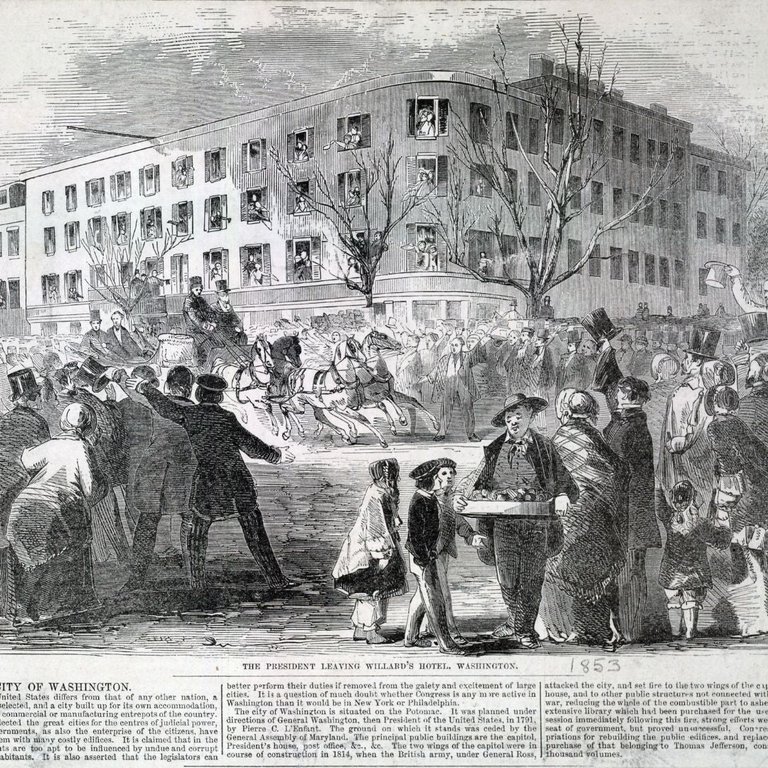[ENG] [ESP] Nuestra historia es parte de nosotros | Our history is a part of us
Para ver la versión en español, haz clic aquí
Hey there, Hive!✨
I'm finally back in my beloved Humanitas community. Although the topic of this post was planned for another day on the initiative, I didn't want to miss the opportunity to talk about it, since I find it interesting. So today I'll tell you why I believe our history shapes and guides us in building our identity.


The quick answer to the proposed question is yes. I believe it is absolutely true that our understanding of history profoundly shapes our identity and aspirations, but let me explain why I see it this way. Written history, no matter how long ago it was written, has determined the course of development of the context in which we now live. That history connects us to our roots, whether family, communal, or national, and allows us to understand how, when, and why we got to where we are now. Knowing where we come from, the struggles and achievements of those who came before us, gives us a sense of belonging and helps us understand the origin of who we are today.
Furthermore, historical experiences, both positive and negative, are often immortalized in the values and beliefs we adopt as individuals and as societies. For example, a country that has experienced a devastating war, a deep crisis, natural disasters, or other significant events may value finding peace above all else, while people who have not experienced the same circumstances may place greater emphasis on other aspects, such as trying to grow their wealth.

With this in mind, we must understand that we construct our identity through the stories we tell about ourselves and the groups to which we belong. These personal and collective narratives, influenced by history, define who we are and what we stand for. In fact, by studying history, we can identify patterns of injustice, oppression, or privilege that have existed in the past and that may continue to impact the present. This awareness is crucial to understanding current social dynamics and seeking equity, since as we see it, our context determines our development. Far from being neutral, our environment lays the groundwork for the potential opportunities or difficulties we will face, thus determining what we can achieve and what we cannot, how we interpret our experiences, and, in general, our life story.

Thus, our history offers us a vast archive of experiences from which we can draw lessons. Analyzing the successes and failures of the past helps us make more informed decisions for the future, avoiding as much as possible the repetition of mistakes, in addition to replicating some successes. Historical figures and events can be sources of inspiration for future action, or serve as warnings about the dangers of certain ideologies or courses of action. At least in theory, this is how it should be, for if we ignore history, we are doomed to repeat it.
Our vision of the future is often built on what we have learned from the past because a society's aspirations may be rooted in overcoming historical challenges or consolidating past achievements. Understanding that history is the result of human actions empowers us to believe in our own ability to influence the future. If the past was constructed, the future can be too.
Therefore, my final reflection is that history is not simply a narrative of past events; it is a lens through which we interpret our present and design our future. To ignore history is, in many ways, to ignore a fundamental part of ourselves.





Español
¡Hola, Hive!✨
Por fin he vuelto a mi querida comunidad de Humanitas. Aunque el tema de este post estaba propuesto para otro día en la iniciativa, no quería desaprovechar la oportunidad de hablar de ello, pues me parece interesante. Así que hoy les comentaré por qué considero que nuestra historia nos forma y guía en la cosntrucción de nuestra identidad.


La respuesta rápida a la pregunta propuesta es sí, considero que es completamente cierto que nuestra comprensión de la historia moldea profundamente nuestra identidad y nuestras aspiraciones, pero me explico mejor porqué lo veo así. La historia escrita, sin importar cuánto tiempo haya pasado de la misma, ha determinado el curso del desarrollo del contexto en el que vivimos ahora. Esa historia nos conecta con nuestras raíces, ya sean familiares, comunitarias o nacionales, y nos permite comprender cómo, cuándo y porqué llegamos a donde estamos. Conocer de dónde venimos, las luchas y los logros de quienes nos precedieron, nos da un sentido de pertenencia y nos ayuda a entender el origen de como somos hoy.
Por otra parte, las experiencias históricas, tanto positivas como negativas, a menudo se inmortalizan en los valores y creencias que adoptamos como individuos y como sociedades. Por ejemplo, un país que ha experimentado una guerra devastadora, una profunda crisis, desastres naturales u otros eventos significativos, puede valorar encontrar la paz por encima de todo, mientras que personas que no experimenten las mismas circunstancias pueden darle mayor relevancia a otros aspectos, como intentar hacer crecer sus riquezas.

Teniendo esto presente, debemos comprender que construimos nuestra identidad a través de las historias que contamos sobre nosotros mismos y sobre los grupos a los que pertenecemos. Estas narrativas personales y colectivas, influenciadas por la historia, definen quiénes somos y qué representamos. De hecho, al estudiar la historia, podemos identificar patrones de injusticia, opresión o privilegio que han existido en el pasado y que pueden seguir impactando el presente. Esta conciencia es crucial para entender las dinámicas sociales actuales y para buscar la equidad, puesto que tal como vemos, nuestro contexto determina nuestro desarrollo. El entorno lejos de ser neutral, establece las bases de las posibles oportunidades o dificultades que tendremos que enfrentar, determinando así lo que podremos alcanzar y lo que no, la forma en la que interpretaremos nuestras experiencias, y en general, nuestra historia de vida.

Así, nuestra historia nos ofrece un vasto archivo de experiencias de las que podemos extraer lecciones. Analizar los éxitos y fracasos del pasado nos ayuda a tomar decisiones más informadas para el futuro, evitando tanto como podamos repetir errores, además de replicar algunos aciertos. Las figuras históricas y los eventos pueden ser fuentes de inspiración para la acción futura, o servir como advertencias sobre los peligros de ciertas ideologías o cursos de acción. Al menos en teoría, así debería ser, pues si ignoramos la historia, estaremos condenados a repetirla.
Nuestra visión del futuro a menudo se construye sobre lo que hemos aprendido del pasado debido a que las aspiraciones de una sociedad pueden estar arraigadas en la superación de desafíos históricos o en la consolidación de logros pasados. Comprender que la historia es el resultado de acciones humanas nos empodera para creer en nuestra propia capacidad de influir en el futuro. Si el pasado se construyó, el futuro también puede serlo.
Por lo tanto, mi reflexión final es que la historia no es simplemente un relato de eventos pasados; es un lente a través del cual interpretamos nuestro presente y diseñamos nuestro futuro. Ignorar la historia es, en muchos sentidos, ignorar una parte fundamental de nosotros mismos.




Posted Using INLEO
https://x.com/mandysmoon98/status/1935098776076865848
buen escrito, si me permites, en ciertos círculos de investigadores busca que la historia sea una herramienta para la transformación del hombre, de un pueblo y una nación, es por ello que se está impulsado en modelo de investigación socio crítico en las ciencias sociales
Sí, es un enfoque que es bastante pertinente, sobretodo ahora que hay cierta tendencia a ignorar la historia intentando desligarse, cuando se debería tener en cuenta para aprender de ella.
Muchas gracias por leer y comentar 🖤